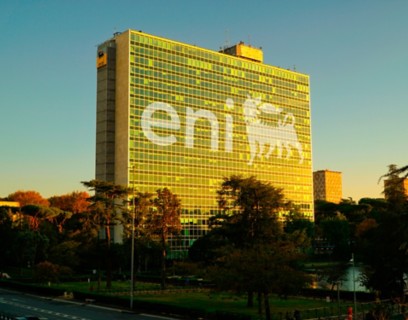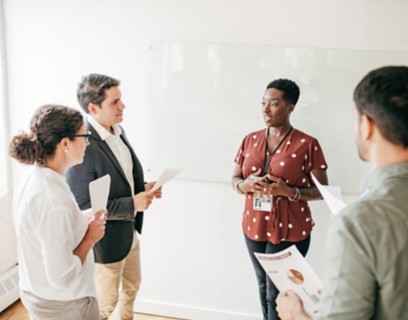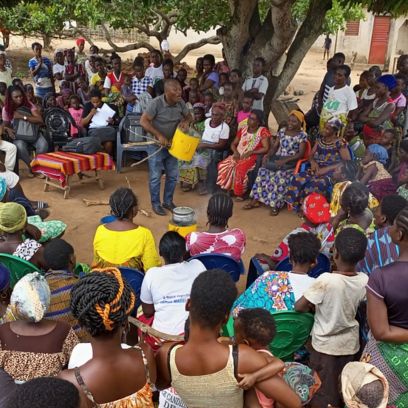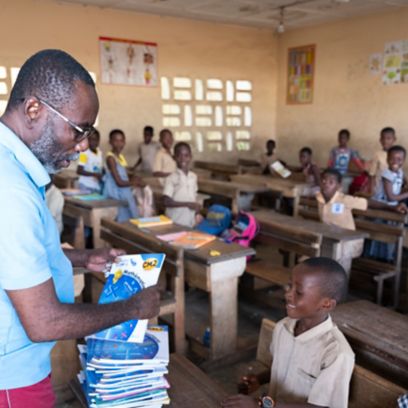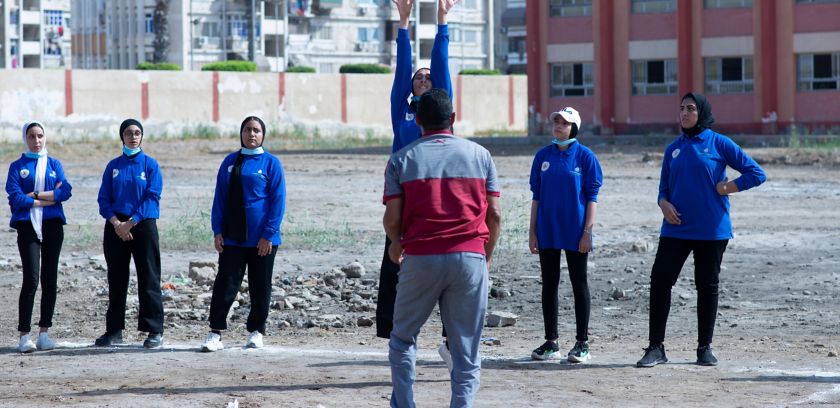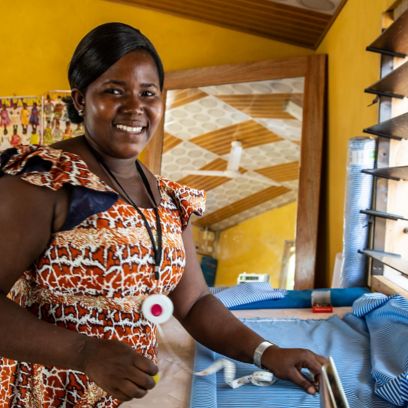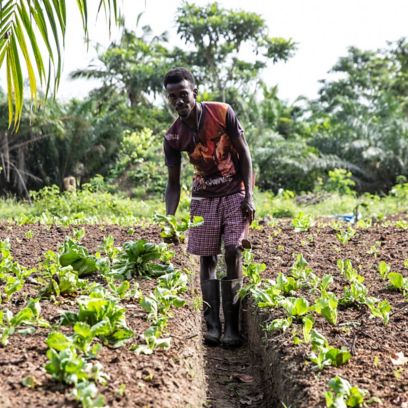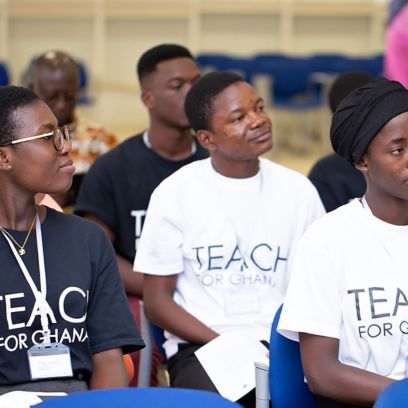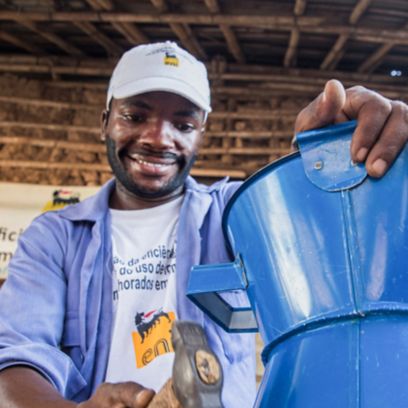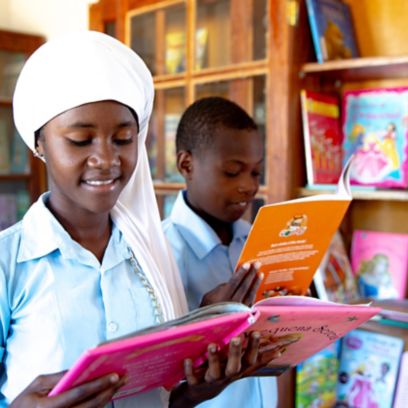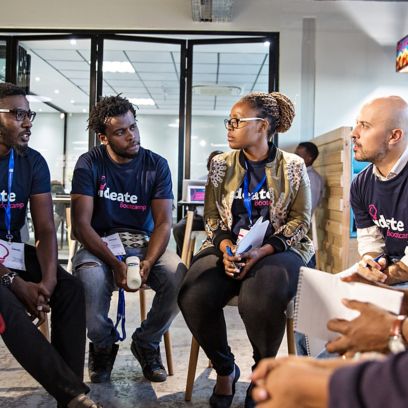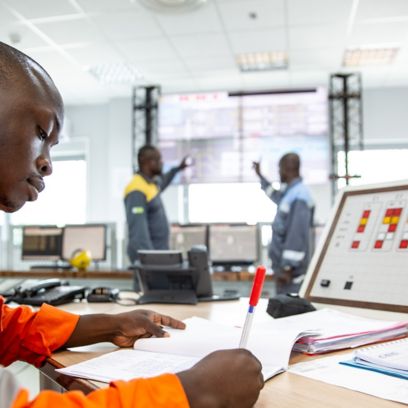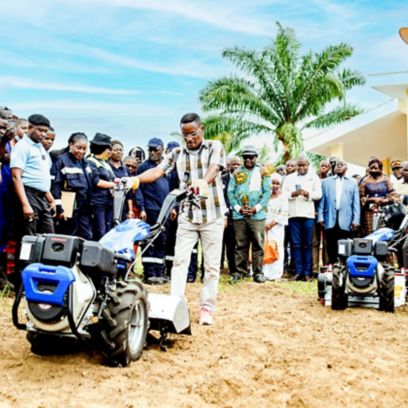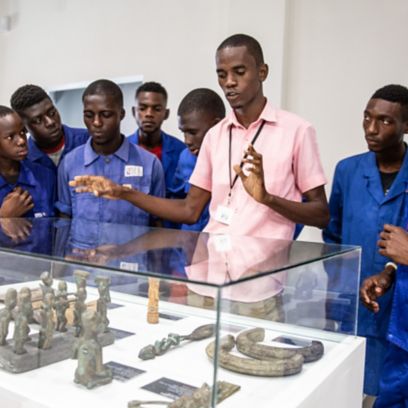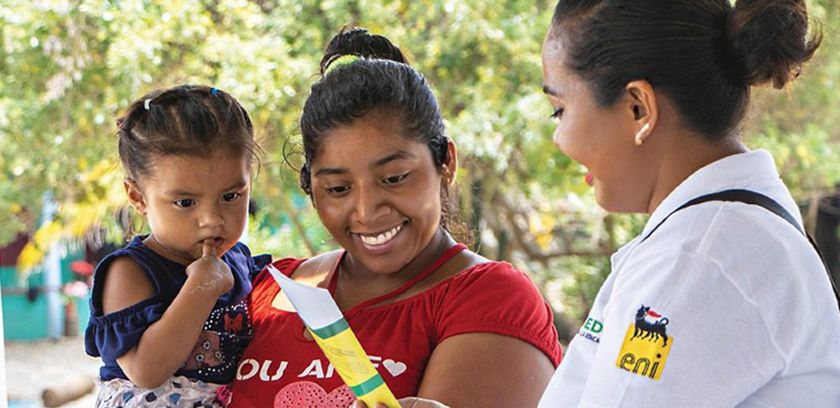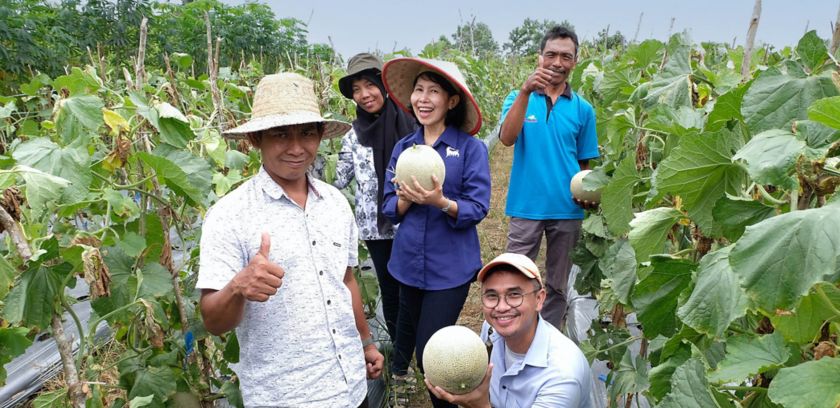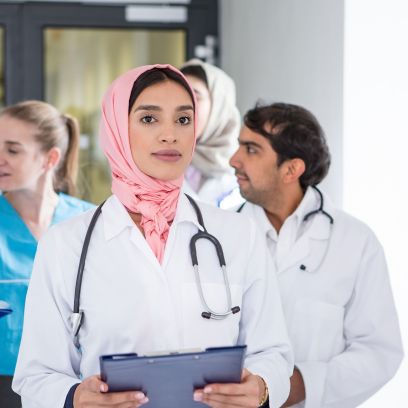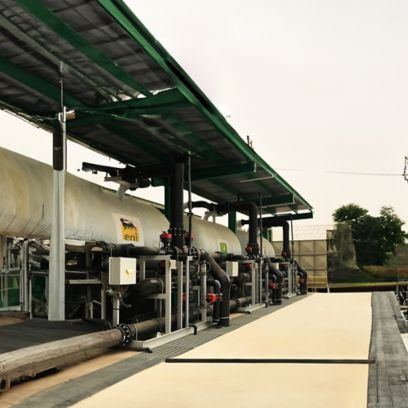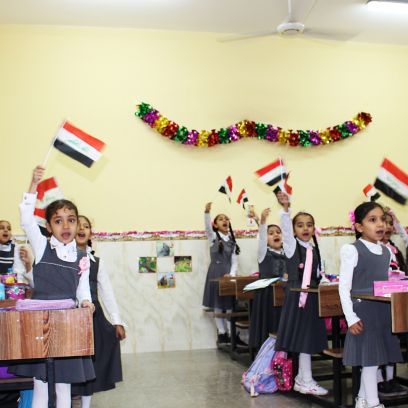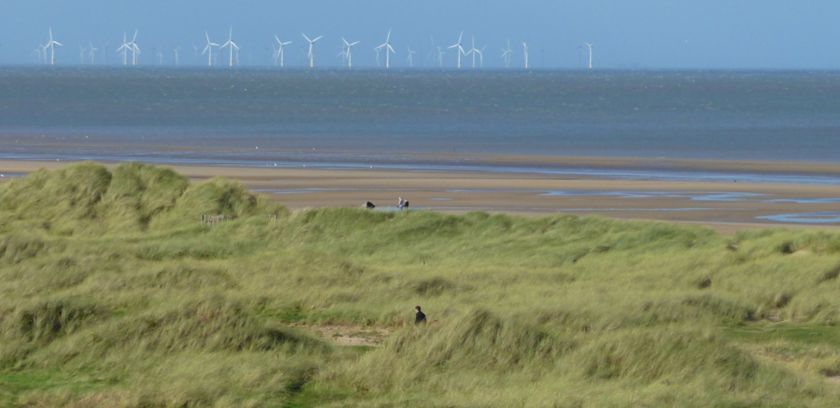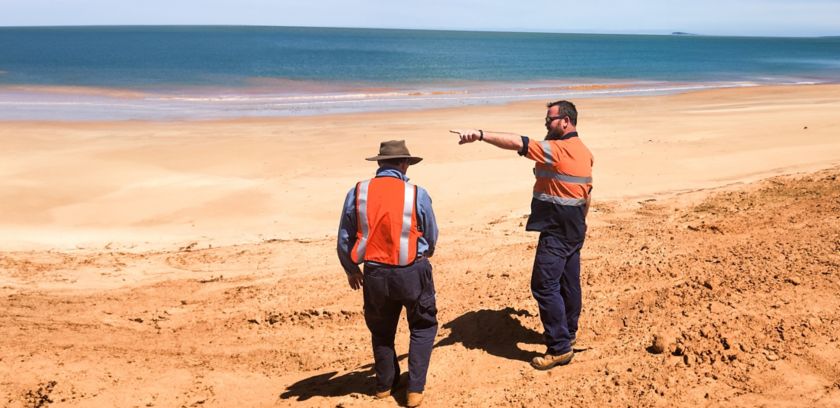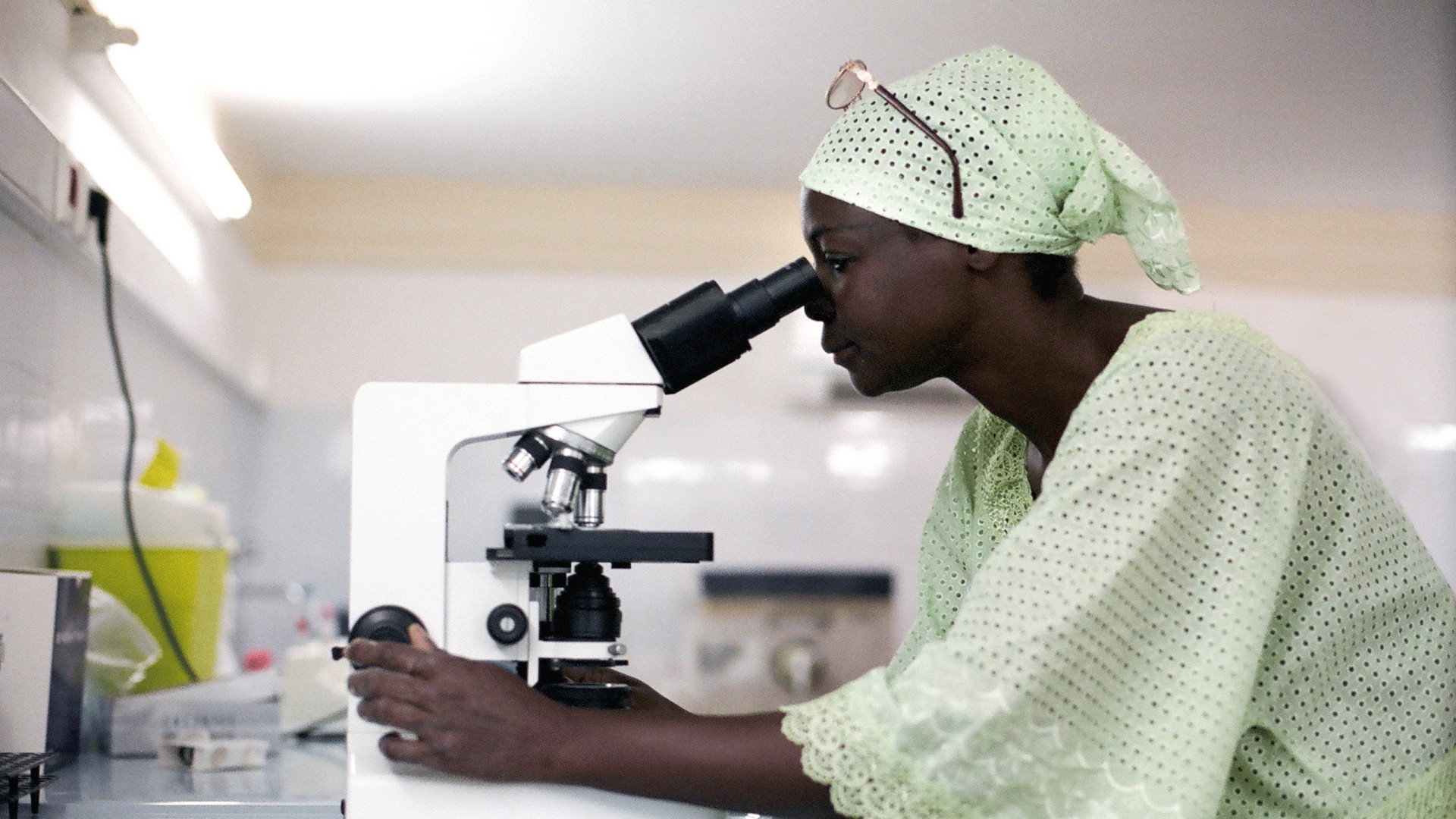
Our approach to local development
We promote Development Programmes and access to energy initiatives for the communities in the areas that host our activities. Ensuring access to energy means addressing the basic needs of communities and supporting global human development by promoting the wider enjoyment of rights such as the right to food, health, water and education, as well as supporting local businesses and creating employment opportunities.
We also support initiatives to diversify economies, protect the environment and provide vocational training to create new job opportunities. Our distinctive 'Dual Flag' approach is based on respecting the individual, understanding local needs and forging lasting partnerships with national and international bodies, resulting in the Alliances for Development.
Initiatives to prevent and combat gender-based violence
We support community-based initiatives to prevent gender-based violence, create income opportunities, access to educational and productive activities by supporting women's economic independence.
Since 2020, Eni has been a member of the United Nations campaign against violence against women and girls "16 Days of Activism against Gender-Based Violence". In line with the theme "Investing in Prevention", we carry out initiatives for the prevention of violence against women in local communities.
Our local development projects around the world
Through local development projects, we want to contribute to the socioeconomic growth of the communities in which we are present. By involving people, we seek to generate positive and lasting change within communities. Our projects are designed and implemented using a participatory approach that integrates relevant cross-cutting issues, such as gender, using tools and methodologies that meet international standards. In 2024, 89 cooperation agreements were active, of which 17 socioeconomic and 4 health agreements were signed during the year.
Our collaborations by area of intervention
Our initiatives protect the right to health, promote social and health development, and strengthen health systems in host countries. In 2024, collaborations with local health authorities, civil society organisations, hospitals and leading scientific partners focused on primary health care, maternal and child health and infectious and non-communicable diseases, nutrition, maternal and child health, and the sanitary conditions of health facilities and the population.
Some of our main activities focus on:
- training of health personnel
- health infrastructure interventions
- awareness campaigns for populations and extraordinary support in the event of emergencies, disasters or pandemics.
In 2024, 30 agreements were active, including four new ones signed during the year, with:
- local institutions, such as the Makueni County Governorate in Kenya for the improvement of basic health services, and in Italy Azienda USL Toscana Nord Ovest, for the experimentation of new technologies aiming at the digitisation of diagnostic-therapeutic-assistance pathways in a logic of environmental sustainability for the protection of citizens' health
- civil society organisations, such as in Côte d'Ivoire with Doctors with Africa Cuamm and the International Rescue Committee to strengthen primary health care services, and in Mozambique with AISPO to strengthen health facilities, with Sant'Egidio and Helpcode for women's health prevention and maternal health
- hospital institutions, such as the IRCCS Policlinico San Donato for the construction of the medical training centre in Port Said, Egypt.
In addition, in 2024, Eni also carried out health system upgrades in Italy, with the aim of contributing to the strengthening and resilience of local facilities in Gela, Milan and Pavia.
Our aim is to ensure that people in the communities where we operate have access to quality, effective, inclusive and long-term education. Some of our main initiatives, implemented in partnership with local authorities, international organisations and with the involvement of civil society groups, include:
- training for teachers, school staff and headteachers to enhance professional and transferable skills
- parental involvement in awareness activities on various topics such as child protection, education, sports, the environment, nutrition, health, hygiene, and equal opportunities
- the renovation or construction of school buildings and the refurbishment of educational facilities
- the handing out of school supplies and student kits
- awareness campaigns to encourage school attendance
- supporting educational programmes for young students, including workshops, scholarships, courses and vocational training programmes aimed at developing skills and knowledge in the energy and natural resources sector.
In 2024, there were 6 active Education agreements, including 2 new ones signed with UNESCO in Iraq and with the Eurasian National University (ENU) in Kazakhstan.
Our aim is to help local communities access clean and safe water and sanitation services to improve living conditions and public health, particularly in areas where access to clean water is limited or unavailable.
Activities in this area may include:
- drilling wells
- installing water treatment systems
- upgrading water networks and improving distribution
- providing sanitation facilities
- implementing hygiene education programmes and initiatives in schools and communities.
We contribute to the conservation and protection of the local natural heritage by supporting ecosystem restoration projects and the conservation and rehabilitation of aquatic ecosystems.
The initiatives also include activities such as:
- waste management support for communities
- waste disposal site rehabilitation
- remediation to restore native vegetation
- tree replanting
- biodiversity conservation
- awareness-raising campaigns on the risks of oil spill pollution and the importance of biodiversity protection.
In 2024 Eni continued the collaboration started with UNESCO in Mexico in 2023 by signing a second agreement to implement a comprehensive water security plan for the Mezcalapa-Samaria sub-basin in the state of Tabasco to deal with frequent flooding.
Projects in this area aim to achieve food security, business development, agriculture and fishing, infrastructure development, the creation of new job opportunities, the empowerment of women and young people, and economic promotion and growth.
Examples of these initiatives include:
- micro-entrepreneurship and job placement projects
- projects for employment and self-support, such as sustainable agriculture, responsible tourism, local handicrafts, production of goods and services
- entrepreneurship training programmes
- mentoring and consultancy for small businesses and start-ups
- vocational training on renewable energy
- environmental management.
There were eight partnerships active in 2024, of which one new partnership with UNESCO in Mexico to support coastal communities in the municipality of Cárdenas, helping them to improve their ability to protect cultural and natural capital while also promoting sustainable tourism.
Activities in this area aim to provide access to energy to communities and areas where it is currently limited or non-existent. Some projects focus on reducing the use of non-renewable energy sources, mitigating the effects of climate change, and providing energy for agriculture, the production of local goods and services and the development of small businesses.
Some of our main activities involve:
- developing small-scale energy distribution systems in rural areas
- supply and installation of electrical components
- construction of transmission lines and connection to the national grid
- support in accessing improved, certified and quality cooking systems
- awareness-raising activities in local communities on energy efficiency, energy saving and renewable energy sources
- installation of photovoltaic panels
- installation of more efficient energy systems.
Our collaborations by area of intervention
Our initiatives protect the right to health, promote social and health development, and strengthen health systems in host countries. In 2024, collaborations with local health authorities, civil society organisations, hospitals and leading scientific partners focused on primary health care, maternal and child health and infectious and non-communicable diseases, nutrition, maternal and child health, and the sanitary conditions of health facilities and the population.
Some of our main activities focus on:
- training of health personnel
- health infrastructure interventions
- awareness campaigns for populations and extraordinary support in the event of emergencies, disasters or pandemics.
In 2024, 30 agreements were active, including four new ones signed during the year, with:
- local institutions, such as the Makueni County Governorate in Kenya for the improvement of basic health services, and in Italy Azienda USL Toscana Nord Ovest, for the experimentation of new technologies aiming at the digitisation of diagnostic-therapeutic-assistance pathways in a logic of environmental sustainability for the protection of citizens' health
- civil society organisations, such as in Côte d'Ivoire with Doctors with Africa Cuamm and the International Rescue Committee to strengthen primary health care services, and in Mozambique with AISPO to strengthen health facilities, with Sant'Egidio and Helpcode for women's health prevention and maternal health
- hospital institutions, such as the IRCCS Policlinico San Donato for the construction of the medical training centre in Port Said, Egypt.
In addition, in 2024, Eni also carried out health system upgrades in Italy, with the aim of contributing to the strengthening and resilience of local facilities in Gela, Milan and Pavia.
Our aim is to ensure that people in the communities where we operate have access to quality, effective, inclusive and long-term education. Some of our main initiatives, implemented in partnership with local authorities, international organisations and with the involvement of civil society groups, include:
- training for teachers, school staff and headteachers to enhance professional and transferable skills
- parental involvement in awareness activities on various topics such as child protection, education, sports, the environment, nutrition, health, hygiene, and equal opportunities
- the renovation or construction of school buildings and the refurbishment of educational facilities
- the handing out of school supplies and student kits
- awareness campaigns to encourage school attendance
- supporting educational programmes for young students, including workshops, scholarships, courses and vocational training programmes aimed at developing skills and knowledge in the energy and natural resources sector.
In 2024, there were 6 active Education agreements, including 2 new ones signed with UNESCO in Iraq and with the Eurasian National University (ENU) in Kazakhstan.
Our aim is to help local communities access clean and safe water and sanitation services to improve living conditions and public health, particularly in areas where access to clean water is limited or unavailable.
Activities in this area may include:
- drilling wells
- installing water treatment systems
- upgrading water networks and improving distribution
- providing sanitation facilities
- implementing hygiene education programmes and initiatives in schools and communities.
We contribute to the conservation and protection of the local natural heritage by supporting ecosystem restoration projects and the conservation and rehabilitation of aquatic ecosystems.
The initiatives also include activities such as:
- waste management support for communities
- waste disposal site rehabilitation
- remediation to restore native vegetation
- tree replanting
- biodiversity conservation
- awareness-raising campaigns on the risks of oil spill pollution and the importance of biodiversity protection.
In 2024 Eni continued the collaboration started with UNESCO in Mexico in 2023 by signing a second agreement to implement a comprehensive water security plan for the Mezcalapa-Samaria sub-basin in the state of Tabasco to deal with frequent flooding.
Projects in this area aim to achieve food security, business development, agriculture and fishing, infrastructure development, the creation of new job opportunities, the empowerment of women and young people, and economic promotion and growth.
Examples of these initiatives include:
- micro-entrepreneurship and job placement projects
- projects for employment and self-support, such as sustainable agriculture, responsible tourism, local handicrafts, production of goods and services
- entrepreneurship training programmes
- mentoring and consultancy for small businesses and start-ups
- vocational training on renewable energy
- environmental management.
There were eight partnerships active in 2024, of which one new partnership with UNESCO in Mexico to support coastal communities in the municipality of Cárdenas, helping them to improve their ability to protect cultural and natural capital while also promoting sustainable tourism.
Activities in this area aim to provide access to energy to communities and areas where it is currently limited or non-existent. Some projects focus on reducing the use of non-renewable energy sources, mitigating the effects of climate change, and providing energy for agriculture, the production of local goods and services and the development of small businesses.
Some of our main activities involve:
- developing small-scale energy distribution systems in rural areas
- supply and installation of electrical components
- construction of transmission lines and connection to the national grid
- support in accessing improved, certified and quality cooking systems
- awareness-raising activities in local communities on energy efficiency, energy saving and renewable energy sources
- installation of photovoltaic panels
- installation of more efficient energy systems.
Our Global presence
Some examples of the local development projects that we support in the countries where we operate.
Local development projects around the world


Local Development Programmes in Cooperation with Countries
Together with governments, we define Local Development Programmes in line with the UN 2030 Agenda and Nationally Determined Contributions (NDC) based on five lines of action.
We strive to ensure that our activities do not negatively impact the lives of people affected by the activities, through a risk-based model that classifies business projects.
Project development may require the acquisition and/or use of land (or water) and the subsequent economic displacement. It is therefore necessary to minimise the socio-economic impacts by limiting as much as possible the loss of assets or the loss of access to assets, which generates the loss of sources of income or livelihood resources.
Local Content is a tool that supports communication with local authorities and provides a useful assessment to guide investment decisions to promote local development. It represents the added value brought to the countries through three lines of intervention:
- transfer of skills and knowledge
- activation of local economic sectors in the supply chain
- interventions to foster the growth and diversification of the local economy.
We track and examine all requests received from our stakeholders to implement sustainable development initiatives shared with local communities. Key elements of the process are openness to dialogue and listening, inclusiveness, understanding the views and expectations of those involved, and sharing choices.
The initiatives deployed by Eni cover six areas of intervention:
Access to energy: to promote the installation of self-sufficient, off-grid systems that allow communities access to basic services and contribute to local socio-economic development
Land preservation: to enhance and protect the local natural heritage, including with activities to support waste management in communities, and to restore the ecosystem, with remediation activities focused on recovering native vegetation
Economic diversification: to foster food safety, the development of entrepreneurial, agricultural, fishing and infrastructural activities, in a long-term perspective, facilitating the creation of new job opportunities for people and businesses, women and youth empowerment
Access to water and sanitation: to ensure the availability, the sustainable management of water and sanitation services for the local population
Education: to promote equitable and inclusive access to quality education and learning
Community Health: to promote access to health and combat the spread of diseases through prevention and treatment.
Business-integrated sustainability
Our presence in local communities follows a five-step approach.
Knowledge of the country's socio-economic, environmental and cultural contexts through the application of internationally recognised tools, also applied at sub-national level, such as the Global Multidimensional Poverty Index (Global MPI - Multidimensional Poverty Index) or the Country profiles on Sustainable Development Goals (defined by SDSN). We are committed to ensuring that our activities do not have a negative impact on the lives of the people affected by our operations, through a risk-based model that classifies business projects and by conducting environmental, social and health impact assessments in accordance with international standards, incorporating local standards where necessary.
An ongoing and reciprocal relationship with those directly or indirectly affected allows for an analysis of their needs and/or the management and monitoring of any complaints, understand local needs and consolidate mutual trust.
Monitoring activities to identify issues, opportunities, and risks from a socio-economic and environmental standpoint (including the respect and promotion of human rights), through the use of impact assessment tools (ESHIA), or specific studies, such as Human Rights Impact Assessment. Assessing potential direct and indirect impacts and implementing any necessary mitigation measures.
The analysis of local needs, the definition and implementation of local development programmes (LDPs) consistent with Country Development Plans, local needs analysis, Agenda 2030 and Nationally Determined Contributions (NDCs).
We manage the evaluation and measurement of local development through the use of tools and methodologies:
- which are our own, and are developed in cooperation with academic institutes such as the Eni Local Content Evaluation (ELCE)
- which are shared internationally and adopted by Eni, such as the Logical Framework Approach (LFA), the results-based management approach and project cycle management.
In addition, we have adopted the Monitoring, Evaluation and Learning management tool to monitor, evaluate and, if necessary, redesign projects, risks or other aspects in order to maximise benefits for communities.
The numerous collaborations with institutions, cooperation agencies and local stakeholders enable a useful approach, to identify key interventions to be implemented in the area.
The Mattei Formula, development starts with cooperation
The strategy developed by Enrico Mattei promotes collaboration with the territories in which we operate to foster sustainable development and meet the needs of communities.
Accessible energy
We support a transition that gives everyone access to reliable and sustainable energy through secure supplies of sources and the use of technologies that support the decarbonization process.

United Nations Industrial Development Organization (UNIDO)
In 2019 we signed a joint declaration with the United Nations Industrial Development Organisation (UNIDO), establishing a pioneering public-private cooperation model aimed at contributing to the achievement of the UN Sustainable Development Goals, particularly in Africa. The collaboration focuses on developing various initiatives to contribute to a fair energy transition. In the Republic of Congo we opened a centre of excellence for renewable energy, in Mozambique we promote youth employment in the agricultural sector, and in the Cape Verde Islands we conducted a feasibility study for the application of onshore and offshore renewables. Finally, as part of the Global partnership for hydrogen application in industry launched by UNIDO, we provide technical support to the table of experts set up to accelerate the global strategic dialogue on hydrogen in industry for developing countries.
With the aim of promoting the creation of an integrated and inclusive sustainable energy market for the country and the wider region, we have initiated a project with the Oyo Centre of Excellence for Renewable Energy and Energy Efficiency (RE&EE) in the Republic of the Congo.
The initiative focuses on important issues such as the water-energy-food nexus, rural electrification and the development of the clean energy sector.
Food and Agriculture Organization
As part of the Access to Water initiative implemented by the Food and Agriculture Organization of the United Nations (FAO) and Eni, in collaboration with the Nigerian National Petroleum Corporation (NNPC), 22 water plants were built in the states of Borno and Yobo in north-east Nigeria. The public-private partnership, launched in 2018, leveraged the parties’ expertise and know-how to facilitate access to water resources for communities affected by the humanitarian crisis in the north-east of the country.
Nigerian Water Stories, the e-book on water access initiatives
Stories and pictures from our work with FAO in Nigeria: our practical contribution to improving access to water and mitigating the climate crisis in the country.
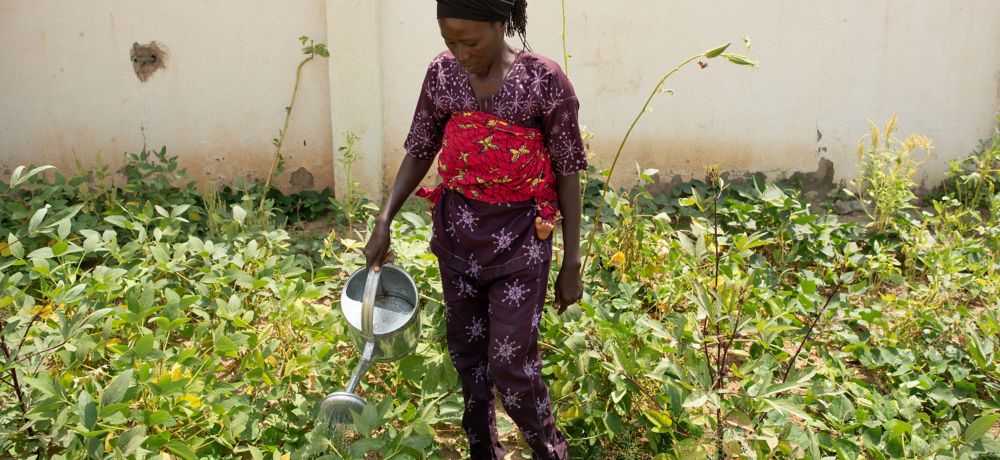
United Nations Development Programme (UNDP)
In 2022 we completed the project initiated by Eni and the United Nations Development Programme (UNDP) in Kazakhstan to bring solar power and other energy efficiency measures to a secondary school in Turkistan for the benefit of 1,900 students.
The United Nations Educational, Scientific and Cultural Organization (UNESCO)
In Mexico, we collaborate with the United Nations Educational, Scientific and Cultural Organisation (UNESCO) through a Memorandum of Understanding. The first results of this agreement include a technical and socio-cultural feasibility study of the Water Security Plan for the Mezcalapa-Samaria Sub-basin. The objective is to reduce the risk of natural disasters and to plan activities related to sustainable tourism management as an opportunity for economic diversification of the areas where our operations are located, particularly the restoration of the La Venta Park-Museum in Villahermosa.
Volunteer Association for International Service (AVSI)
We work with AVSI and the Tabasco State Government to support the training and education of teachers and students. Activities include the upgrading of schools, the distribution of school materials for primary schools, skills development through courses and workshops, and the involvement of local communities in educational activities.
In the area of access to energy, we are working in Kenya to install organic photovoltaic panels (OPV) in schools and other community facilities. In communities in the Pemba area, we are working to improve the efficiency of woodfuel use to reduce the impact on natural resources by promoting improved cookstoves. In the Abidjan district and South Comoé region of Côte d'Ivoire, we are helping to improve access to education and quality learning in primary schools through teacher training programmes and remedial classes for students.
Ministry of Health, State of Tabasco, Mexico
In collaboration with the Ministry of Health of the State of Tabasco, we are working to improve nutrition and maternal and child health in the municipality of Cardenas by strengthening health services and access.
Ministry of Health and Population in Egypt
We contribute to community health and to promoting quality primary and emergency healthcare services in the Governorate of Port Said, Egypt, in collaboration with the Ministry of Health and Population and the General Authority of Healthcare. We have supplied hospitals with medical equipment to support cardiology, urology, neurology and gynaecology services, carried out health training activities, initiated activities to establish a training centre of excellence for health personnel, and conducted awareness-raising campaigns on communicable diseases in primary schools.
In Italy, Eni Enrico Mattei's Foundation and Consortium Akiris
In the context of projects to promote education in Italy, the creation of the Agricultural Experimentation and Training Centre (CASF) for the community of Lucania promotes more sustainable and profitable agriculture, while enhancing marginal areas. The dual objective is to develop agricultural experimentation initiatives and to provide professional training and dissemination activities. The centre acts as a crossroads between the production system, training and research, promoting the transfer of technology, good practices and agricultural innovations. In addition to experimental tests in the field of Agriculture 4.0, the project also involves local start-ups and includes training for operators and students from technical institutes on agronomic issues, as well as the organization of school tours for primary and secondary schools.
Banco Alimentare and Banco Alimentare of Sicily
With the aim of supporting the recovery and distribution of food surpluses to combat waste and help the most vulnerable families, we work to contribute to the cost of transporting food from the Banco Alimentare della Sicilia's [Sicily’s food bank] hub in Catania to charitable organisations in Gela, while also working to optimise logistics and establish strategic agreements with operators in the sector.
Desert Research Centre
To promote access to water, the agricultural project in the governorates of Matrouh and South Sinai, Egypt, is helping to increase the resilience of rural communities to desertification in the Seventh Community and Wadi Mukattab. We are helping to improve access to water by installing water supply systems for agricultural and domestic use, providing better sanitation, and training livestock breeders and farmers to increase the productivity of their economic activities.
Don Bosco Higher Institute
In 2024, through Eni Natural Energies Sucursal em Angola, we launched the Clean Cooking program in Angola. Free stove distribution in communities is organised by Don Bosco and Doctors with Africa CUAMM. The programme has fostered the creation of workshops dedicated to the production of improved stoves at Don Bosco’s vocational training centres in Luanda and Benguela, and has aided in the development of entrepreneurship and technical skills, creating specialised job opportunities. The initiative also includes scholarships leading to jobs in the field of environment and renewable energies, and awareness campaigns on nutrition and basic hygiene to strengthen both local health services and the educational system.
From 2019 we will implement a programme of technical and vocational training in collaboration with the Cabo Delgado Provincial Directorate for Science and Technology, Higher Vocational and Technical Education, Don Bosco High School and the Colleges and Institutes of Canada. The aim is to support the improvement of young people’s technical skills by providing assistance to the Industrial and Commercial Institute of Pemba (IICP). We have contributed to the training and certification of teachers and managers of the IICP, provided industrial equipment, instrumentation and built a laboratory. We also provide scholarships and professional courses.
Polytechnic of Milan
With this university, we have developed different methodologies to measure the impacts generated on the territory, assessing the economic value brought by our presence and analysing the social benefits created. The methodologies are defined in accordance with metrics already used by international bodies and validated by research and academic institutions. The main tools that have been developed are theEni Local Content Evaluation (ELCE) Model and the Eni Impact Tool. To date, the ELCE model has been applied to the following projects: CCS Ravenna Phase 1 Congo LNG and Baleine projects in Côte d'Ivoire, OCTP in Ghana, East Hub, West Hub, Quiluma & Maboqueiro in Angola, Zohr in Egypt, Coral South in Mozambique, Area 1 in Mexico, as well as to the Italian operating sites of Ravenna, Sannazzaro de' Burgondi and Val d'Agri. The Eni Impact Tool has been applied to energy access projects in the Republic of Congo (Centrale Électrique du Congo) and in some communities in the Niger Delta.
The Faculty of Agriculture in Milan
We collaborate with the Faculty of Agriculture of the University of Milan on different projects and with multiple applications in the field. In the Republic of Congo, we are working to develop agro-livestock initiatives and support the activities of the Centre d'Appui Technique et Ressources Professionnelles (CATREP).
Collaborations and partnerships towards fair energy
Our partnerships are the result of a shared commitment to help provide energy to the people of a growing world.
Eni for 2024. Check out our interactive feature
Read the stories, case studies and testimonials behind our contribution to a socially equitable energy transition in the Sustainability Report.




